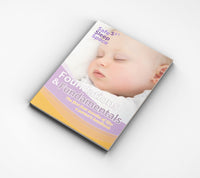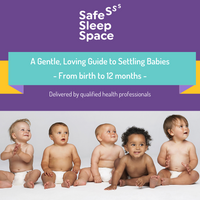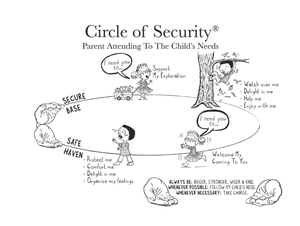The unknown essential nutrient for a healthy Mum and Bub during pregnancy & breastfeeding

Pregnancy and breastfeeding is such a special time. New beginnings, new life, new family. A lovingly decorated nursery, new onesies and hand-knitted blankets. But it’s what’s happening on the inside that is most important.
The nutrients a woman provides to her baby during the period of pregnancy and breastfeeding, affects their growth and development and can have lasting implications on their long-term health. Certain nutrients are especially important to fuel healthy development.
We hear a lot about folate and iron, but one of the most important nutrients for both pregnancy and breastfeeding is choline. Yet around 90% of people aren’t getting enough. [1][2]
“Choline is often referred to as the unknown essential nutrient as few people, even health professionals, know about it” says choline researcher Professor Marie Caudill.
“Dietary recommendations for choline were not established until 1998 as compared to the early 1940s for the other nutrients. In addition, only recently has choline been featured in nutrition textbooks and included in the curriculum for nutrition majors.”
Choline is one of the few nutrients, which actually becomes more important during breastfeeding. The recommended adequate intake increases from 440mg during pregnancy to 550mg during breastfeeding. [3] Yet 90 – 95% of pregnant women aren’t meeting recommended levels [4]
“Our preliminary dietary studies clearly show an insufficient choline intake compared to the recommended levels,” said Curtis, an analytical chemist and project leader for ongoing choline research at the University of Alberta [1]
During pregnancy, choline works alongside folate in the development of the neural tube, as well as supporting healthy brain development which has been shown to have lasting effects on learning and memory function.
“The demand for choline during human pregnancy is high because large amounts are required for cell division and tissue expansion. Recent findings from my laboratory suggest that supplementing the maternal diet with extra choline (i.e, 550 mg choline/d) may improve maternal and child health outcomes by enhancing placenta function easing babies response to stress.”
“We recently showed that a higher maternal choline intake attenuated the production of a protein that contributes to preeclampsia. Thus, mothers not consuming enough choline during pregnancy may be at greater risk of placental dysfunction” says Professor Caudill.
“Choline is needed for cellular division, tissue expansion, lipoprotein synthesis and one-carbon metabolism; all of which are accelerated in pregnancy. In addition, large amounts of choline are present in human milk thereby increasing the choline requirement among lactating women.”
Benefits of choline during pregnancy and breastfeeding
- Supports healthy neural tube closure [5][6]
- Reduces the risk of neural tube defects [7][8]
- Supports healthy brain development [9]
- Helps support lifelong learning and memory [10]
- Reduces stress and anxiety levels in the infant [11]
- Supports healthy growth of the placenta [12]
The importance of choline is summed up well by Gerald Weissmann MD Editor in chief FASEB Journal:
“The importance of choline cannot be overstated as we continue to unravel the role it plays in human health and development”[13]
Animal products are richest food sources of choline including egg yolks, red med, chicken and fish. Vegetarians and vegans are at most risk of choline deficiency.
Other good sources of choline include lecithin granules, baked beans, kidney beans, lentils, brussel sprouts, broccoli, spinach, cauliflower, wheatgerm and oats.
Due to the importance of choline in pregnancy and breastfeeding, the American Medical Association recently made recommendations to include choline in all prenatal supplements. [14]
Currently in Australia, most prenatal supplements don’t provide this important prenatal nutrient. I recommend women choose a prenatal supplement which provides 300mg of choline alongside a healthy variety of choline-rich foods.
Tasha Jennings, Natural Fertility Naturopath and Nutritionist
Tasha Jennings is a Naturopath and Nutritionist, who helps proactive women and couples optimise fertility wellbeing to create healthy pregnancies and healthy babies.
Through her private face to face consultations, professional presentations, webinars, published books (The Vitamins Guide and The Fertility Diet), Conceive Baby Podcast and online courses, she educates people about fertility wellbeing to help them optimize the pregnancy outcomes and the long term health of their future child.
Help with looking after your baby
The NourishBaby - Guide to Babies - is an online program that you can view in your own time. The Guide to Babies helps you to understand and care for your baby and covers key milestones, sleep and settling advice and baby development. There is a section on real parents sharing their experience of adjusting to parenthood.
Other blog posts you will find helpful:
When is it time to get help for my child's sleeping?
How to help stop a toddler's bottles.
Amber beads. Why they're really not a good idea.
Why is my baby noisy when they sleep?
References
[1]Claudill MA. Pre and postnatal health: evidence of increased choline needs J Am Diet Assoc. 2010 Aug;110(8):1198-206 [pub med abstract]
[2]National Institutes of Health. US Department of Health Human Services – Health Professionals Facts Sheet [fact sheet]
[3] Nutrient reference values Australia and New Zealand https://www.nrv.gov.au/nutrients/choline
[4]Brunst KJ, Wright RO, DiGioia K, Enlow MB, Fernandez H, Wright RJ, et al. Racial/ethnic and sociodemographic factors associated with micronutrient intakes and inadequacies among pregnant women in an urban US population. Public Health Nutr 2014;17:1960-70 [pubmed abstract]
[5]Shaw GM1, Carmichael SL, Yang W, Selvin S, Schaffer DMPericonceptional dietary intake of choline and betaine and neural tube defects in offspring Am J Epidemiol. 2004 Jul 15;160(2):102-9 [pubmed abstract]
[6] Kelei Li, Mark L. Wahlqvist and Duo Li Nutrition, One-Carbon Metabolism and Neural Tube Defects: A Review Nutrients. 2016 Nov; 8(11): 741 [pubmed article]
[7] Shaw GM1, Carmichael SL, Yang W, Selvin S, Schaffer DM Periconceptional dietary intake of choline and betaine and neural tube defects in offspring Am J Epidemiol. 2004 Jul 15;160(2):102-9 [pubmed abstract]
[8] Kelei Li, Mark L. Wahlqvist and Duo Li Nutrition, One-Carbon Metabolism and Neural Tube Defects: A Review Nutrients. 2016 Nov; 8(11): 741 [pubmed article]
[9 ]Lisa M. Sanders, PhD, RD and Steven H. Zeisel, MD, PhD Choline Dietary Requirements and Role in Brain Development Nutr Today. 2007; 42(4): 181–186[pubmed article]
[10] Lisa M. Sanders, PhD, RD and Steven H. Zeisel, MD, PhD Choline Dietary Requirements and Role in Brain Development Nutr Today. 2007; 42(4): 181–186[pubmed article]
[11]Jiang X et al. A higher maternal choline intake among third-trimester pregnant women lowers placental and circulating concentrations of the antiangiogenic factor fms-like tyrosine kinase-1 (sFLT1) FASEB J. 2013
Mar;27(3):1245-53. doi: 10.1096/fj.12-221648. Epub 2012 Nov 29 [pubmed abstract]
[12]Jiang X et al. A higher maternal choline intake among third-trimester pregnant women lowers placental and circulating concentrations of the antiangiogenic factor fms-like tyrosine kinase-1 (sFLT1) FASEB J. 2013 Mar;27(3):1245-53. doi: 10.1096/fj.12-221648. Epub 2012 Nov 29 [pubmed abstract]
[13] Federation of American Societies for Experimental Biology. "Sick from stress? Blame your mom… and epigenetics." ScienceDaily. ScienceDaily, 31 July 2012 [article]
[14] AMA backs global health experts in calling infertility a disease AMA June 2017[article]








